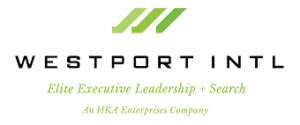“A Hole in Your Swing?”
Self-Awareness…. it’s all ball bearing these days.
I have repeated so many movie lines in my life that it is ridiculous. One that I have said more often than most is a line from Fletch — ”it’s all ball bearings these days.” When hiring executives and leaders and evaluating potential in today’s world, it’s all about self-awareness. If you hire a leader or someone you hope has potential and they don’t have self-awareness, then none of their other attributes/potential really matter.
Interviews and assessments are designed to help find derailers and characteristics that inhibit people’s leadership performance or potential. A perfect candidate does not exist. Everyone has a flaw or two that proper coaching can improve. Part of the interview process needs to be finding those flaws and having the courage to make it part of the decision and not just an elimination hurdle.
When I was new to a TA leader role at a Fortune 500 company, I was part of an interview team for someone who was a former employee that everyone wanted to rehire. After the interview, everyone (and they were all in much higher level positions than mine) was in agreement to rehire this person except me. I wasn’t and was faced with expressing my dissenting point of view. I described the person as having a “hole in their swing”. I was attacked because, at first, no one in the room knew that baseball reference. I went on to explain that twice the candidate had experienced career negative events because they were risk adverse. It wasn’t only that the person was risk adverse–it was the inability of the person to see that in themselves that eventually lead to negative events. The person was rehired. Somehow, my boss didn’t fire me for speaking out. About 14 months later, the company demoted and eventually fired the person. I have to credit my boss for believing in me, and at a later date, giving me credit for my courage of conviction. He called me out on good and bad, and I love that about bosses.
We all need to understand our derailers. We have weaknesses that present themselves in normal day to day life and others that present themselves while we are under stress. Our ability to understand how to manage ourselves and be open to coaching is critical for effective leadership.
My first retained search came when I was 26 years old around 1992. A medical technology company hired me to find someone to run one of their businesses. The top candidate ended up being a woman who they put through their executive assessment. They had used this assessment for a long time. I am not going to say that the assessment was bad or that it was biased, but I will say that today‘s assessments are much better than they were 30 years ago.
My client did not hire this woman. The assessment came back that she avoided conflict. I had spent much time with her and did not believe the assessment was correct. While she didn’t seek out confrontation, I had multiple examples where she had showed courage to address conflict when needed. I believed she was self-aware and had learned how to overcome this issue through mentors. My client missed an opportunity. This same client struggled over the years and were eventually acquired. The woman that they did not hire had become a successful CEO of another more profitable medical company within 5 to 6 years. I am not saying if they hired her, my client’s future would have been changed. I don’t believe the assessment failed them, but I do believe it was not a complete picture of the person. I do think the group did not recognize her self-awareness and her ability to manage past her weaknesses.
I have taken a number of assessments, and I continue to be amazed at how accurate they are in evaluating me. I believe in assessments. I believe that they add some great data points. However, people are complex. Situations are complex. Leading groups of people through complex dynamic environments is difficult. I believe assessments provide great data but shouldn’t be used as a complete predictor tool that overrules people judgement at all times.
While assessments can be accurate, using them and solely trusting them as predictors is folly and the people that do typically lack managerial courage. Strictly relying on leadership potential from an assessment to me is like being in Economics 101 on the first day of school. If these 6 things remain constant, then how does money supply affect growth? While the theory of how money supply affecting growth is accurate, the other 6 things will never remain constant. Don’t worry I am wrapping this up.
My message is simple. When interviewing and evaluating results from assessments, resist the urge to blindly rely on them as predictors. Learn to take those data points and evaluate the person’s degree of self-awareness on those items. If someone understands their weaknesses and has even modest learning agility, they will able to learn to be effective despite having a “hole in their swing”.
Dennis Dunlavey President at Westport Intl
www.westportintl.com
864-271-8877
337 Spartangreen Blvd.
Duncan, SC 29334



